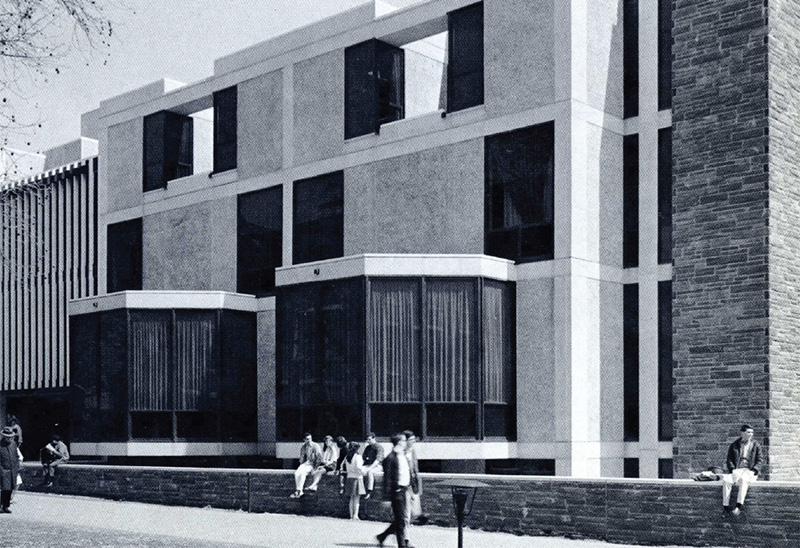
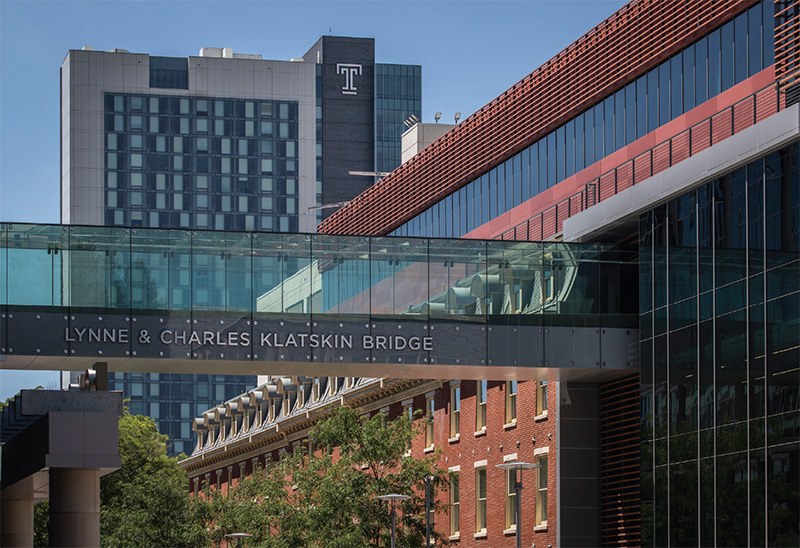
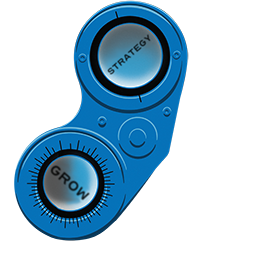
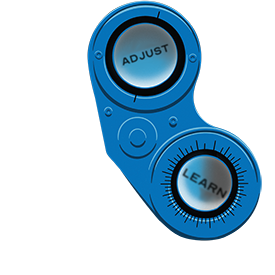






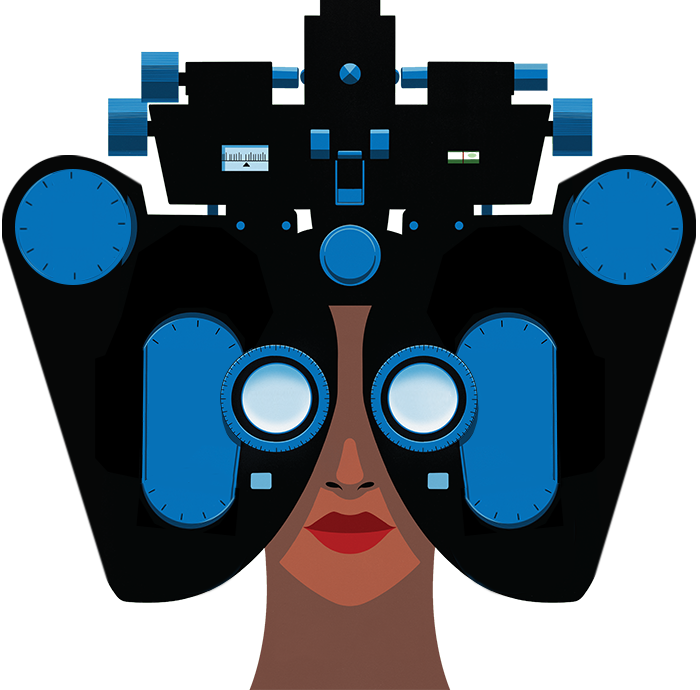
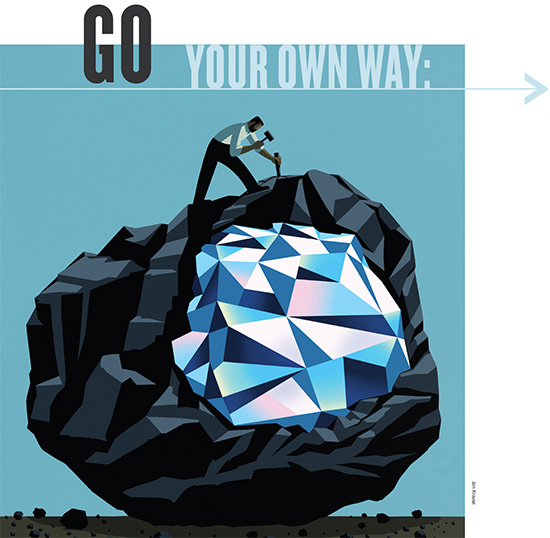
Across the workforce and in educational institutions, refinement is seemingly inevitable as people encounter new experiences that challenge their current systems and beliefs.
Naturally, many students, faculty and alumni at the Fox School have refined their approach to their professional and educational careers. Here are three examples of Owls who've made adjustments to alter the trajectory of their future.

Photo provided by Derek Fisher
Growing up in the suburbs of Philadelphia, second year undergraduate student and Fox School student ambassador Derek "DJ" Fisher was confident early on he'd go to Temple.
"In middle school, I knew where I was going," says Fisher. "The Fox School of Business was the cherry on top. People talked about how it was a great business school and I saw the connections my neighbor had made going there."
While Fisher felt sure of his decision to go to the Fox School, his confidence in his intended major was uncertain.
Fisher says he mostly took general education courses during his first year of college to focus on getting acclimated to college life. His second semester, though, he took a major-specific course that changed the trajectory of his education at Temple.
"It was a good class, but I was just sitting there thinking, 'I don't know if this is for me,'" explains Fisher.
And so, Fisher decided to change his major to something that excited him more: marketing.
His decision came, in part, due to his experience as a student ambassador at the Fox School. In this role, Fisher says he was able to speak with students and faculty across all departments to learn about the different undergraduate programs available to him.
Fisher says marketing stood out to him the most. Plus, after learning that the School of Sport, Tourism and Hospitality Management offered a sport management certificate program, Fisher realized he could combine his curiosity for marketing with his lifelong passion for sports in a way he'd never imagined.
As Fisher begins his journey with marketing and sport management, he advises students: "If you don't like something, just change it."
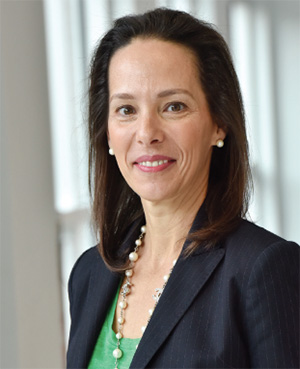
Photo by Jim Roese
With more than 20 years of experience working internationally at three of the largest global information technology providers, Assistant Professor of Management Information Systems (MIS) Marie-Christine Martin's career has been a process of continual refinement and learning—even after her transition from the corporate world to the academic world in 2015.
As a professor, Martin finds opportunities to refine her teachings in order to meet modern industry demands. Just recently, she received an Experiential Learning award for her course redesign of Lead Global Projects (MIS 3535) to include a semester-long, live, client-facing project—a long and rewarding experience.
Martin's first redesign step? Taking the class herself.
Then, she began to redesign with the help of another faculty member
"After I took the class to refresh and deep dive into [scrum] methodology, we looked into what we should keep, and what we should let go," explains Martin. "It was really us tag teaming."
For two semesters, Martin kept some of the course's previous content and then updated around 60% of the course material.
Martin says at the end of the year, she evaluated the material again to see where it could be updated to meet the needs of students and the industry, as well as to establish better more cohesive linkages with other MIS courses.
After three semesters to stabilize the updated curriculum, Martin's end result empowers students to use the concepts taught in class to build a website and other digital assets for a real industry client, preparing them for the workforce.
Martin says, "Many of the students that have taken the redesigned course have sent us feedback saying they use it every day. One student even had an internship during my class, and they said to me, 'Professor Martin, I actually used this today.'"
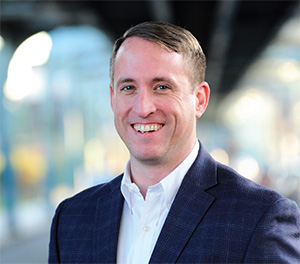
Photo provided by Christopher Grey
Unsure of what to do for work after graduating with his bachelor's degree, Christopher Grey, MBA '20, moved back to the Greater Philadelphia area and started loading boxes at UPS. Although he initially had no long-term plans to stay with the company, he quickly realized he could put his degree to work within its business development sector.
For the next 16 years, Grey worked his way up in the company. Then, he competed for two different positions within the company against two other employees—and found himself the only person without an offer.
Taken aback by this, Grey decided to start researching his graduate school options.
"At first, I was angry. Then I realized I can't change (the company)—I can only change me," says Grey.
Impressed by the Fox School's reputation, in-person classes and networking opportunities, Grey applied and was accepted into the Fox MBA program. Grey continued to work at UPS fulltime while pursuing his MBA and saw the benefit of his higher education experience in the workplace.
"I was promoted twice within those four years while at UPS," says Grey. "I attribute that to how my perspectives were broadened and how my knowledge of different business units grew exponentially. I took all those lessons and applied them to my day-to-day work activities and it just made me better."
But, Grey's career at UPS wasn't his long-term goal. Shortly before his 20-year work anniversary with UPS, he took the biggest risk of his career—accepting a buyout, effectively retiring from the only company he'd worked for.
"Leaving my 19-year career that I could've stayed at forever was a big risk. If I didn't have the MBA, I probably wouldn't have felt as confident taking the buyout," says Grey.
Months after leaving UPS, Grey began utilizing his alma mater's resources with the help of Pam Lyman, director of alumni career and professional development at the Fox School. He set up informational interviews with professionals he had connected with on LinkedIn and at Temple and was able to narrow down where he wanted to go with his career.
During this time, Grey received a message on LinkedIn about an opportunity at SmartKargo, software as a service firm that provides advanced integrated technology for the global air cargo industry.
One Zoom call and a trip to Boston later, Grey officially left behind the Fortune 500 world to blaze a new trail for a smaller software startup as its vice president of business development. It was a vastly different, but rewarding experience for him.
"I couldn't have done it without Career and Professional Services. And, hands down, I couldn't have done it without my Temple degree because I wouldn't have had the skill set," says Grey.
With 100 years of history and nearly 70,000 undergraduate, graduate and doctoral degrees earned, the fox school has changed tremendously. Samuel D. Hodge jr., professor of risk, actuarial science and legal studies, and lori roseman, director of the fox honors program, can attest to that. They are not only both temple university graduates who work for the fox school of business, but they are father and daughter.


Photos provided by Temple University
Hodge, LAW '74, '79, and Roseman, STH '02, MS '18, have seen the campus change from various of perspectives. For Hodge, it was first as a student, then an educator, then a parent. He enrolled in Temple Law School in 1971 and has been a pillar in the Temple University community ever since. He's taught at the Fox School, the Lewis Katz School of Medicine and the Beasley School of Law. At Temple, he led one of the first large classroom lectures and served as chair of the Department of Legal Studies for 25 years. Hodge's daughter Lori and son both attended Temple, receiving two degrees each.

Roseman has been a student, staff member, educator and possibly a parent at Temple, as her children are expected to attend the university. When she first graduated from the School of Sport, Tourism and Hospitality Management, she did not expect to return as a staff member. "My background was in event planning and never in a million years did I see myself going and then sticking with higher education," she says. Now celebrating 15 years with the Fox School, it seems to be the perfect fit. "I have a true passion for working in the Honors program," she adds.
Together, Hodge and Roseman have a combined total of 76 years at Temple University. Here's what they said has changed the most.
The experience of living on campus has evolved.
"When I was a student, Temple was very much a commuter school," Roseman recalls. "There were very few dorms to choose from and nobody was living in off-campus housing as a freshman. Now it's a completely different type of school, to the point where everybody wants to live on campus."
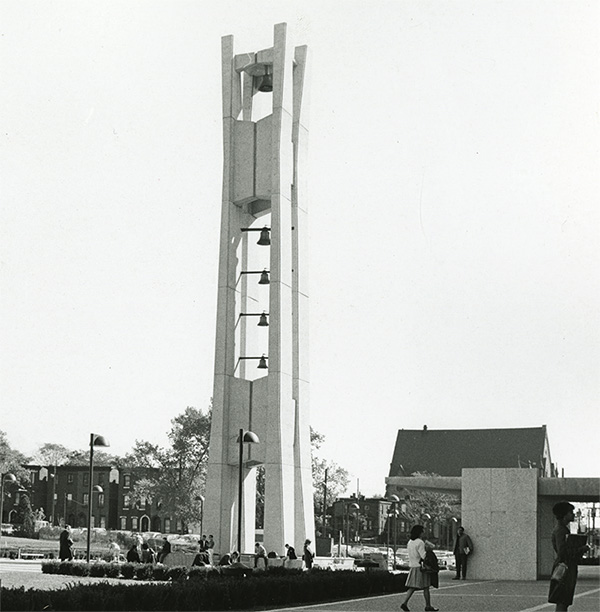
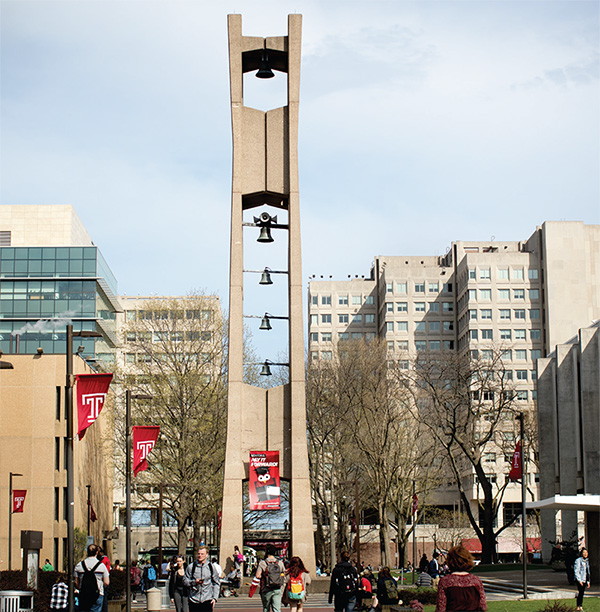
Photos provided by Temple University
Hodge credits former Temple University President Peter J. Liacouras for his focus on creating an oncampus community.
The shift in the environment on campus is evident by the ways communication has evolved. Before social media and texting, Roseman shared how students gathered together and spread the word about what was happening on campus.
"There were these huge columns on campus and people used to staple event flyers and that's how you knew about events. We didn't have cell phones. We just used to knock on people's doors and say, ‘Do you want to hang out?' That worked for us."
Hodge remembers when the Fox School was originally called the School of Commerce and only had four departments: accounting, law, marketing and finance. The school became known as the Fox School in 1999 and currently has seven academic areas.
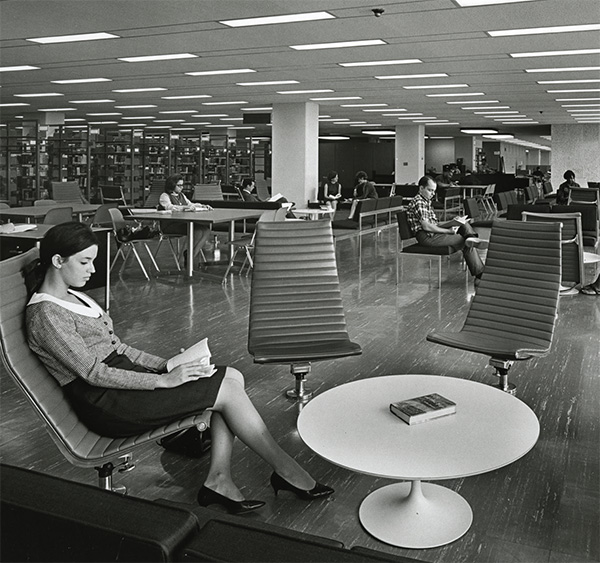

Photos provided by Temple University
Roseman adds that the diversification of majors and departments is due to the Fox School's commitment to its four Strategic Plan pillars, including Education Innovation.
"Fox evolves with modern trends," she says.
Inside the classroom also looks increasingly different. Instructors now use smart boards instead of slide projectors. Recently, students in graduate courses have embraced virtual reality (VR), taking classes via Oculus VR headsets.

"Today, we have smart classrooms and it's amazing how we've advanced from a technological point of view," Hodge adds.
Roseman echoes her father's excitement. "I never imagined any scenario in higher education where you would be able to do everything virtually."
That virtual expansion increased throughout the pandemic. "Education is going to be changed forever," Hodge elaborates. "There's always going to be a demand for online courses."
Both Hodge and Roseman have seen firsthand how Temple students have changed and evolved.
"I've witnessed the transformation to such a diverse population of students from around the world," says Hodge.
Students are not just growing in diversity, but also in their desire for a well-rounded higher education experience.
"The students are different today. They won't just accept what I say. They'll challenge you on something, whereas before if the teacher said it, that was gospel," says Hodge.
Roseman agrees, "I believe that the hunger and the drive have always been there, but now students are more focused on leadership positions and experiential learning opportunities early. More students want to study abroad, not just for a summer, but for a semester or even for an entire year."
"Diversity, inclusion and social responsibility are much more important to students now and they really are showing greater emotional and cultural intelligence," Roseman adds. Temple has also made a significant stride in available resources for the community on campus.
"The university has made a much more conscious effort to support the students and staff at the school and university as a whole—with medical, psychological, emotional and financial help," Hodge says.
As they reflect on their time at Temple, both father and daughter have a lot to say about what they've learned and their vision for the future.
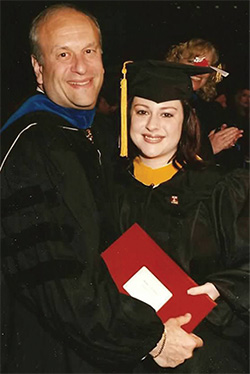
Photo provided by Lori Roseman
"I truly believe that both of my degrees have helped prepare me for who I am today," Roseman shares. "Over the years, I've developed a lot more confidence. I've expanded my network. I'm a true student leader, an advocate and have built very strong and lasting relationships with my students.
"Another thing that I've learned is that empathy is everything because you really never truly know what someone is going through. Always be supportive, compassionate and ready to listen."
This year, Hodge celebrates his 47th year of teaching. "It dawned on me how long I have been at Temple when a student came up to me and said, ‘My mom said to say hi," he says, laughing. "I have gone through generations of students at Temple."
Hodge will be transitioning to retirement over the next few years. However, he is proud of his accomplishments and the work he has pioneered during his time at Temple.
Roseman adds, "I believe that Temple is on a path to continuously improving campus. I see Temple aiming to be a very vibrant campus amongst its competitors that are maybe not in an urban environment. I don't ever see it going backward. I only see it continuing to move forward."
JON HUYNH, BBA '16, was a Fox Honors student and credits Roseman for guiding him. "She definitely helped me figure out what I wanted to do. She did a lot of my advising and because of her, I ended up working as a student advisor," he says.
As both Roseman and Huynh discussed their time as students, it was clear there were differences. One of the first points of conversation: the food.
Roseman recalls only a handful of spots students could eat and socialize besides the Johnson and Hardwick cafeteria and dorms. "There was one pizza place called Owl's Nest and we would hang out at Salad Alley, where Maxi's is now located."
Students today can now enjoy a variety of selections, from food trucks to fast food restaurants in the student center. It is also something that students miss when they graduate.
"I didn't realize it until I moved away for my first job, but food trucks and having such a vibrant food scene is not common everywhere you go," Huynh shares.
During Roseman's time as a student, the most popular majors were nursing, communication and education. On the contrary, in 2016, Huynh's peers were interested in management information systems, actuarial science and risk management. Huynh himself was part of the first graduating class for the statistical science and data analytics program.
"I thought there was one path to do everything, but the Fox School and Temple opened up my eyes to see that not every job, career, or whatever you want to do, has just one way to get there," he says. "It was through opportunities like the BYOBB [the Institute for Innovation and Entrepreneurship's Be Your Own Boss Bowl®] that I started to understand that there are all sorts of tools here for students interested in starting their own thing. Joining that competition helped me understand that everything doesn't have to be unilateral," Huynh says.
The BYOBB is a pitch competition for aspiring entrepreneurs, open to all students, alumni, faculty and staff from all 17 schools and colleges within Temple. Huynh participated in 2019 and won the "Crowd Favorite" award.
Now, Huynh is pursuing a graduate degree in data science at Columbia University while working as a software engineer for mobile iOS development at All Your Cards In One. It is a startup mobile app that combines your cards so that each transaction routes to the best credit card in your wallet when you pay.
"I think I became a professional," Huynh says, considering his time at the Fox School. "Coming in, I had no idea what it meant to be ready for job fairs, career fairs and interviews or how to work in teams and in the workplace. The school helped prepare me for all those things at a professional level."
The Fox School often refers to alumni as "changemakers”—professionals who are focused on social impact, diversity, equity and inclusion (DEI) and shape their careers around making the world a better place.
BERNIE MILANO, BS '61, is a quintessential example of a changemaker. With support from the KPMG Foundation, Milano founded the PhD Project; over the last 28 years, he and the organization have helped African Americans, Hispanic Americans and Native Americans return to academia to earn their doctorates and become business professors. His work has dramatically increased the number of minority faculty teaching in business schools today—according to AACSB, there were just 294 in 1994 and now there are over 1,300.
Due to this service to his community and much more, Milano was recently presented with the AACSB 2022 Influential Leaders Award by the Fox School of Business.
The Fox editorial team sat down with Milano to find out more about the beginnings of the PhD Project, diversity in academia and what lessons business schools can learn from his work.
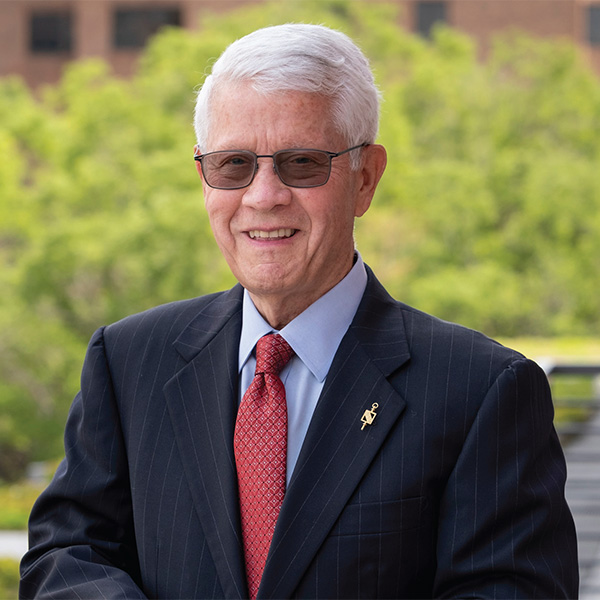
Bernie Milano
What inspired you to start the PhD Project?
In 1994, I was responsible for college recruiting for KPMG and I was very frustrated because I was not able to find students of color coming out of the business schools, especially in accounting and finance. It's one thing to have metrics about hiring practices and goals. Every company has those. But I really felt that we couldn't have a very successful organization if we didn't have more diversity. We saw that at historically Black colleges, the faculty were diverse and Black students were thriving. Students could come in and see themselves represented in the classroom. Other colleges were nowhere close in terms of diversity. So rather than continuing to say, "Well, we can't find diverse graduates coming out of business schools,” I was proud of KPMG for saying, "OK, let's try something we haven't done before.” Let's try a systemic approach, as opposed to something that looks good for two or three years
What was that initial work like?
We had no clue—there was no template to follow. We knew we had to find a way to educate people in the corporate world about this career opportunity, so we decided to have a conference.
To spread the word, we partnered with organizations like the National Black MBA Association, National Society of Hispanic MBAs and the National Association of Black Accountants to send our information to their membership.
Can you talk a bit about how your privilege and experience in the business world has allowed you to take a risk like the PhD Project?
So, personally, I grew up in the apartment above my father's dry cleaning store. My mother and father both finished eighth grade and that was the end of their education. My brother, who is 12 years older, led the way for me by going to Temple's Kornberg School of Dentistry.
But on the side of taking a risk, I give KPMG a lot of credit. We basically approached leadership and said, this is a business problem, a pipeline problem. We have to have more diversity—the clients demand it, society demands it, our people demand it. We can't walk away from it. We freed up funding and we knew that this was a project with a long lead time to get people interested in the idea of pursuing their PhD. It was not a quick fix.
How do programs like this benefit business schools like Fox?
I think the benefit on the business school side is you're producing a product that's supposed to be able to assume leadership roles when they graduate. Now, if you're producing that in a monocultural environment, you're doing not as good of a job because if you don't have minority faculty, you're not gonna have minority students.
And it's only when the classroom reflects the diversity they are likely to find in society and in the corporate world that they're ready for it. For example, for students who grew up in a predominantly white neighborhood, go to a predominantly white high school and college, the first time they really experience people who are different from them is when they start their job. It's likely that they will not be prepared for that, and will do as well as they could. And there is a chance that, on the organizational side, there will be problems with the way that employee interacts and communicates with people who are different from them.
A lot of people see hiring practices as being 'broken.' Practices like 'blind hiring' do not account for a person's specific background in terms of gender identity or race, which seems counterintuitive to the goal of inclusion and wanting a diverse range of voices in the room when it comes time to make business decisions, or for educating the next generation of business leaders. What strategies do you recommend for recruiting and hiring?
I ran recruiting for KPMG for a couple of decades and if you seriously believe that diversity is critical to your organization, then you have to go out and find the right candidates.
You can't be satisfied taking the easy road. Any time there's a serious business issue, people work really, really hard at trying to solve that business problem. So to suggest that the way to solve a diversity problem, in terms of total acquisition, is going to be easy? Forget it.
One of the things I found personally when I reached out to companies to get involved with the PhD Project was they were unwilling to change the way they recruit. Organizations have to go in recognizing that if they are really serious, they will have to put the resources behind this work.
The other thing that can be crucial for both recruitment and retention is the idea of 'cluster hiring.' (Faculty cluster hiring is an emerging practice in higher education and involves hiring faculty into multiple departments or colleges around interdisciplinary research topics, or 'clusters.') Being a pioneer can be exhausting. If these people went to a diverse high school, they probably know what it's like to be on their own. They know what it's like to be isolated. Then they go to college where they might be one of a few minority students. Then a doctoral program where they might be the ONLY minority student. Hiring a group of faculty at the same time, where they can form a community and share experiences, can help make people want to stay.
How about schools, colleges or businesses that might not have the funding for cluster hiring?
I'll tell you something that a couple of schools are doing. One school is running a research support program for minority doctoral students. They bring in minority doctoral students from other universities for a few days to work with senior faculty who are researching in the same area. So the school is helping the doctoral student get a different perspective on their research than they're getting in their own doctoral program, but they also can present their research in a very safe, trusting environment. Subliminally, of course, what that school's doing is saying, 'When you finish your doctoral program, we hope you will come here.'
Another university is taking PhD Project doctoral students and teaching them how to be better presenters. They're really helping these people be better at their first job and, again, the subliminal message is, 'We care about you and look how great our school is. Look how great our community is. Look how great the city is.' And so it helps their hiring. So it's really stepping out to do something different and there are lots of opportunities to do that.